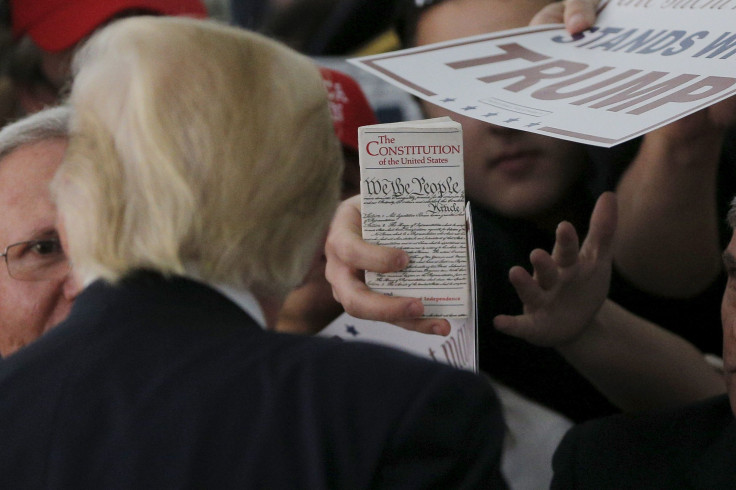What Is The Emoluments Clause? Full Definition And Text Of Constitutional Clause Decrying Conflicts Of Interest

A Constitutional clause relating to conflict of interest may already be giving President Donald Trump trouble.
Even prior to assuming his position as president of the United States, Trump was hit with allegations he already has violated the Emoluments Clause or the Foreign Emoluments Clause. The claims are related to Trump’s business interests and their connection to overseas companies and payments.
The Emoluments Clause states:
“No title of nobility shall be granted by the United States: And no person holding any office of profit or trust under them, shall, without the consent of the Congress, accept of any present, emolument, office or title of any kind whatever, from any king, prince or foreign state.”
Ethics experts filed a lawsuit in federal court Monday, claiming Trump has, indeed, violated the Emoluments Clause, citing multiple examples of conflicts of interest, NPR reported Monday.
The suit outlined a list of examples that detailed how the new president could benefit from connections to foreign businesses. A Trump Tower lease renewal in New York was cited due to a loan that was partially held by the Bank of China. In addition, the suit argued Trump continues to receive royalties from the television show “The Apprentice.”
“These violations of the Foreign Emoluments Clause pose a grave threat to the United States and its citizens,” the lawsuit reads in part. “As the framers were aware, private financial interests can subtly sway even the most virtuous leaders, and entanglements between American officials and foreign powers could pose a creeping, insidious threat to the republic.”
The Emoluments Clause, found in Article 1, Section 9, Clause 8 of the U.S. Constitution, was established to protect the government from conflicts of interest and the “United States against corrupting foreign influences,” according to Heritage.org.
The clause was tied to the customary practice of foreign royals hosting foreign diplomats and bestowing gifts. Receiving gifts from foreign royalty first was banned by the Dutch during the mid-17th century because of the potential for corruption, according to the Constitution Center.
© Copyright IBTimes 2024. All rights reserved.





















